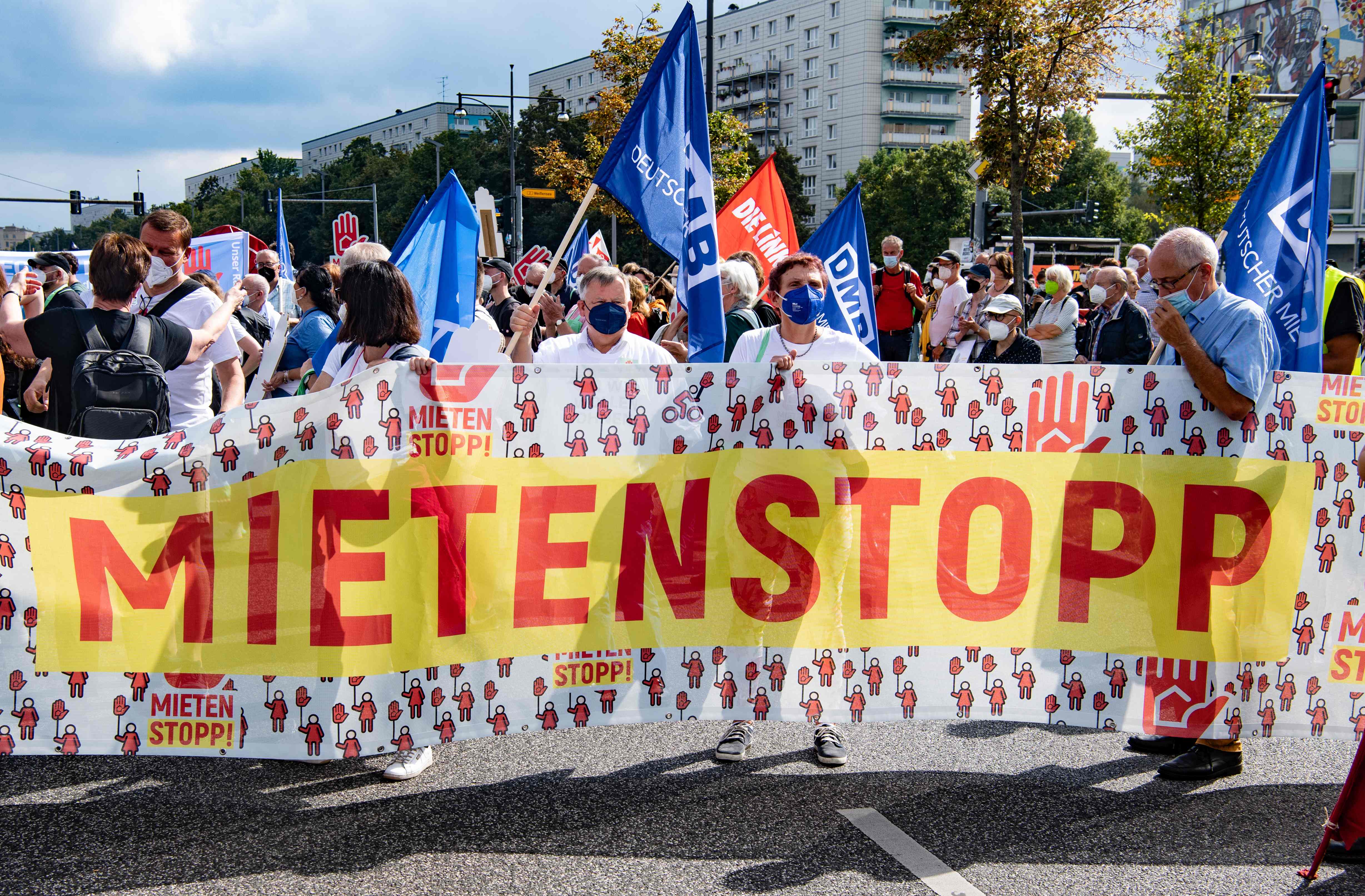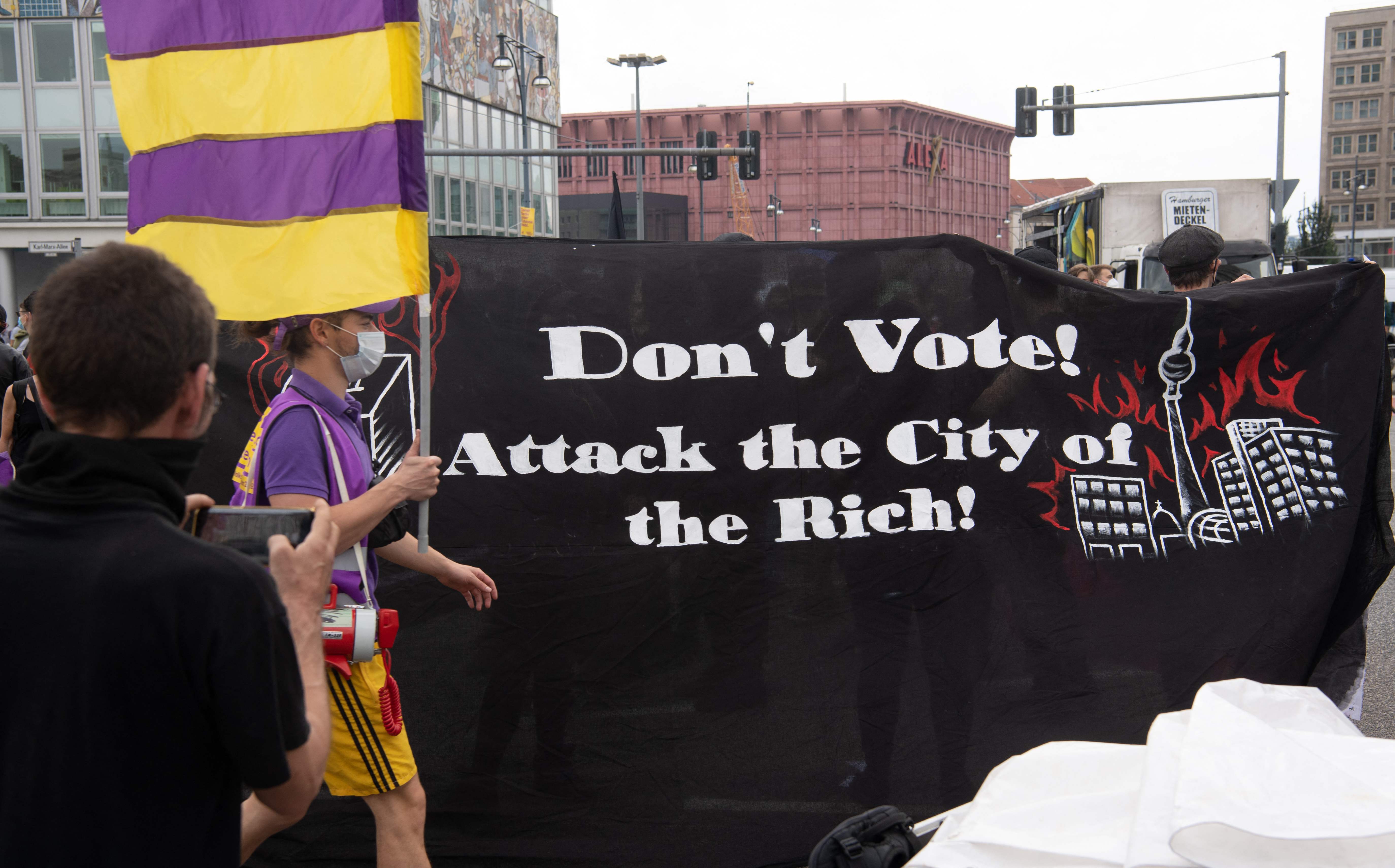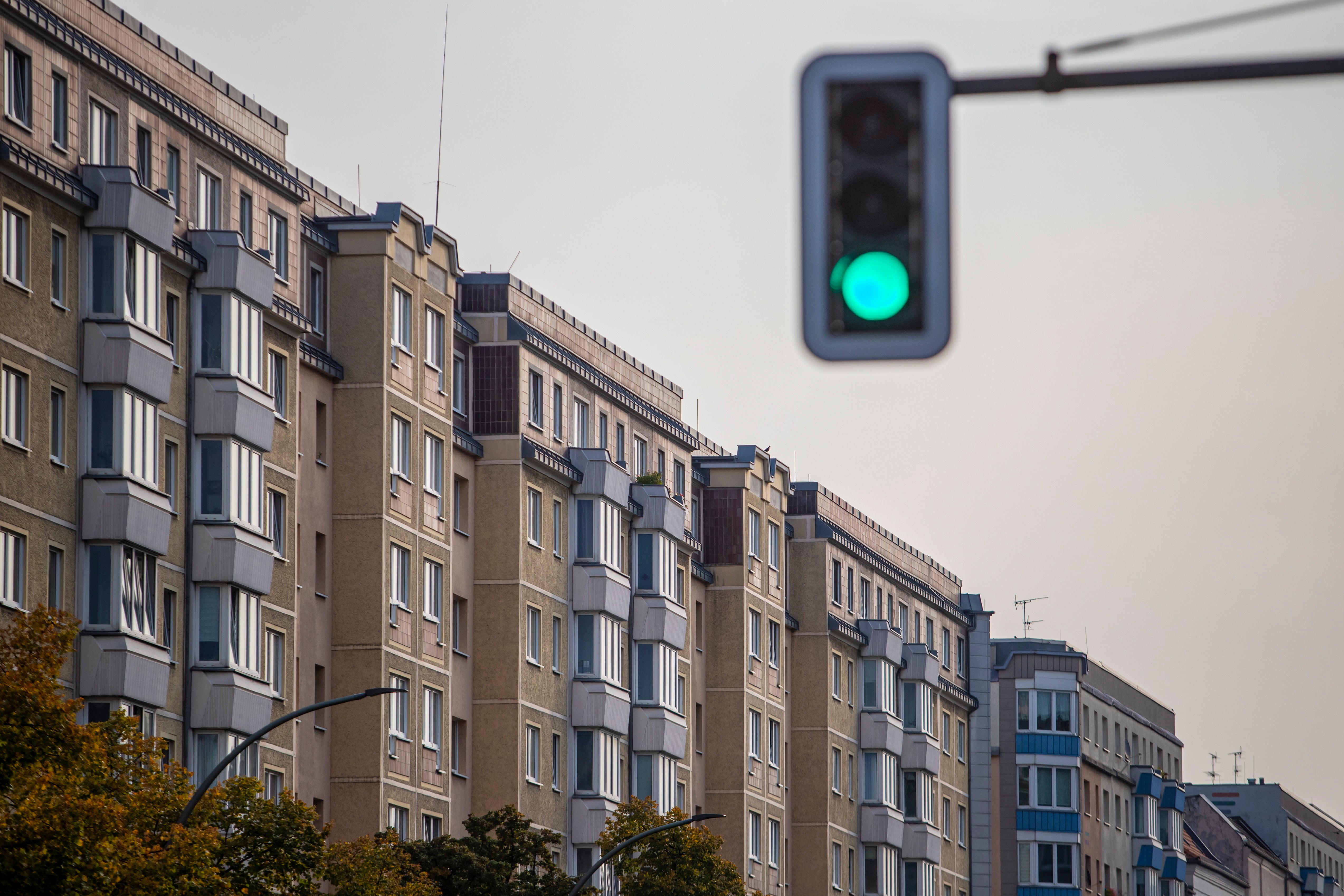‘Nein’ to gentrification: Berlin residents take aim at property speculators and investors in referendum vote
Frustrations over gentrification and rapidly rising rent costs in Berlin have boiled over in recent years, triggering a failed attempt to introduce rent controls last year - and now a referendum to expropriate flats owned by private companies, writes Erik Kirschbaum

More than 30 years after the Berlin Wall fell and Soviet-style communism in East Germany collapsed, voters in the reunited German capital voted overwhelmingly by a 56% to 39% margin in Sunday’s elections in favour of a non-binding referendum that calls upon the city government to step in and expropriate flats owned by private companies.
Frustrations over gentrification and rapidly rising rent costs in a city that long enjoyed a global reputation for extremely low rents and a bohemian lifestyle have boiled over in recent years with first, a failed attempt last year to put a five-year freeze on all rent increases and now the referendum calling for “Enteignung” – or the forced sale of all housing by large-scale landlords owning more than 3,000 flats.
The rent freeze was already declared unconstitutional in April by Germany’s highest court in Karlsruhe and the latest attempt to expropriate the estimated 240,000 – or 15% of the privately owned flats in Berlin -- currently in the hands of six large private companies would probably suffer a similar fate, according to legal scholars and some political leaders. Berlin, a city of 3.8 million and growing by 25,000 to 40,000 per year recently, has as a total of about 2 million flats.
We want to force the speculators and property sharks out of Berlin
Franziska Giffey, the leader of the victorious Social Democrats in Berlin in Sunday’s city-state elections, has said she strongly opposes the referendum and its planned-economy demands even though others in what is expected to be her left-leaning city-state government of SPD, Greens and far-left Linke party are in favour of forcibly taking back flats more than 20 years after the then-nearly insolvent city sold them off in a fire sale because it could no longer afford the upkeep and renovations.
“It would be crossing a red line if the state started expropriating private housing,” said Giffey, 43, shortly before the election in which rising rents was the top campaign issue far ahead of security, the environment and schooling. “I don’t want to live in a city that sends out a signal like ‘this is where property is expropriated’. I grew up in East Germany and experienced first-hand what expropriating really means. I don’t think expropriation is the right way to go. We need more affordable housing, without question and effective rent control. But expropriation does not belong in our toolbox.”

But Giffey has pledged she will respect the referendum and allow the proposal that some of its more level-headed backers call simply the “Vergesellschaftung” , or “socialization”, of all housing by large “for-profit companies” in Berlin to be examined by legal experts.
Organizers of the referendum were euphoric. “This was a clear mandate and clear decision for expropriations,” said Rouzbeh Taheri, who organized the petition. “We want to force the speculators and property sharks out of Berlin. I expect to see a clear roadmap on enacting this referendum from the incoming government.”
Tens of thousands of protestors have frequently marched in spirited demonstrations for more protection against rising rents on city streets in recent years. Berlin has long had a proud tradition of heavy state support for low-cost housing for the working class, especially in the previously communist eastern half of the city where rents were easily affordable and evictions are unheard of. That is why a very high share, or about 85% of Berlin residents, are renters instead of owning their own flat.

Berliners tend to have a low regard for property owners and reject any notion that property is a “commodity”. Real estate investors had long avoided Berlin, until the last decade, as a result and property prices actually fell in the 1990s and in the noughties, a time when Berlin sold off 220,000 of its 336,000 rent-subsized social housing units when prices were depressed.
The city-state government in Berlin has estimated it could cost the financially strapped capital city between 29 and 36 billion euros to buy back the 220,000 to 240,000 privately owned flats while backers of the referendum counter the costs would be less than one-third as much. They argue the constitution allows the state to “socialize” housing if necessary and that the state could thus force the owners to sell the flats back to the city at below-market rates.
Critics point out the spectre of such a forced expropriation of private property in Berlin would throttle construction for new housing and frighten off investors from across Germany and around the world – which already started to happen last year with the failed rent-freeze law. That would exacerbate the housing shortage, they argue.
It’s too expensive, legally difficult, it would be difficult to implement, and it’s simply wrong
The critics also say the billions of euros would be more wisely spent on building new low-cost housing in Berlin to help alleviate the pressures that have caused rents to rise steeply in recent years. They said the funding needed to buy back the 240,000 flats would not add a single flat to the available housing stock in Berlin. The rents for the privately owned flats are generally kept below market rates – upon instructions and guidance from the city government.

“It’s too expensive, legally difficult, it would be difficult to implement, and it’s simply wrong,” said SPD parliamentary floor leader in the city assembly, Raed Saleh of the referendum. “We’re opposed to expropriations.” But he added that because 56% of Berlin voters backed the referendum the government would nevertheless closely examine it.
The average rent price in Berlin rose from 6.65 euros per square meter in 2011 to 10.49 euros in 2021 – that translates into 400 euros for a typically modest 60 square meter (or 650-square foot) two-bedroom apartment a decade ago to 630 euros for the same flat today, according to the statistics office. Some private property consultancies have said new rental agreements for flats in Berlin are up as much as 20% per year even though the overall average increase is far lower because the costs in so many existing rental agreements are seldom if ever raised.
Many Berliners with rental contracts from before about 2010 are shielded from the brunt of these recent rent increasers and are often paying as little as 300 to 400 euros for modest-sized two bedroom flats in the middle of the city while new rental agreements are often twice those amounts.
“This is pure populism,” wrote Gunnar Schupelius, a columnist for the B.Z. tabloid newspaper. “The referendum attracted supporters beyond the far-left spectrum because their arguments followed a simple logic: Large private landlords are to blame for the rising rents and housing shortage – and thus they must be stopped…It doesn’t make any sense to expropriate these flats.”






Join our commenting forum
Join thought-provoking conversations, follow other Independent readers and see their replies
5Comments